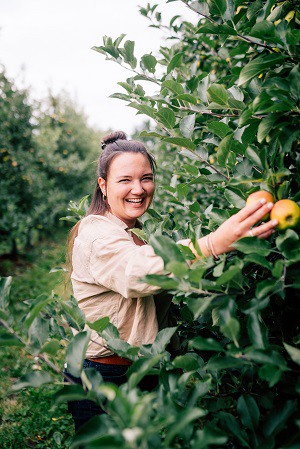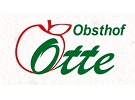"Due  to the shift of the break-even point, it will not be possible this year to sell larger quantities at low prices, for example to wholesalers. The rising production costs, above all the personnel costs, energy and material costs, which are so important for special crop cultivation, make it necessary to produce only those quantities that can also be marketed at fair prices," Charlotte Otte (picture right) from Obsthof Otte in Hiddenhausen informs us on request. "However, our goal is to further optimize production so that, despite the increased costs, high-quality goods are offered under fair production conditions at fair prices."
to the shift of the break-even point, it will not be possible this year to sell larger quantities at low prices, for example to wholesalers. The rising production costs, above all the personnel costs, energy and material costs, which are so important for special crop cultivation, make it necessary to produce only those quantities that can also be marketed at fair prices," Charlotte Otte (picture right) from Obsthof Otte in Hiddenhausen informs us on request. "However, our goal is to further optimize production so that, despite the increased costs, high-quality goods are offered under fair production conditions at fair prices."
Retailers entice people with permanent low-price campaigns
Meanwhile, Otte thinks the demand for the apples in recent weeks has been good. "Towards spring, the range of varieties reduces a little, as some varieties are then sold out, but sales were stable and even above the previous year's level. However, sales from October 2022 onwards were characterized by price sensitivity and cautious consumer behavior, by the energy price crisis and by people's fear that they would not be able to pay their heating bills at the end of the winter. Fortunately, this phase has now been overcome and demand has increased significantly again with the prospect of spring from February," the farmer states.
"The large Europe-wide apple supply on the market has led to significant price pressure. Food retailers have lured customers with permanent low-price campaigns. Overall, we have had a low price level for apples this year as a result. We had very good crop volumes for several varieties, and for these varieties we enabled customers to enjoy a special price advantage."
Main buying criteria: Sustainability and regionality
Otte also noticed that during the Corona period, there was a strong emphasis on sustainability and regionality as criteria for making purchasing decisions. "2022 was marked by the outbreak of war in Ukraine, the subsequent energy price crisis, inflation and the introduction of the 12-euro minimum wage - a personnel cost increase of about 25 percent in about a year and a half, which overall created challenging market conditions for all parties involved. We have nevertheless managed to continue producing and offering the best possible quality at attractive prices even under these difficult market conditions." At the point of sale, the trend toward unpackaged goods is also evident, Otte said. "In particular, customers who value quality and sustainability are happy to do without unnecessary packaging: Less is more."
Meanwhile, she sees the biggest challenges of the future in the consequences of climate change. "We humans usually only understand that we need to take urgent action when we feel the consequences directly. As these will increase, sustainability in production, climate-friendly production, i.e. short distances and thus regionality will become extremely important. Those who only focus on price battles in the short term and reduce themselves to discount levels are not acting in an economically sustainable way at all."
For more information: Charlotte Otte
Charlotte Otte
Obsthof Otte Vertrieb
Heidestr.42
32120 Hiddenhausen
Tel. +49 5223-83400
Fax: +49 5223-87401
Email: [email protected]
Internet: www.obsthof-otte.de
